|
Cat Hairballs: Causes, Treatments & Home Remedies
Cats are renowned for their meticulous grooming. This may lead to a common cat concern: hairballs. While these formations of fur are a natural part of a cat's grooming routine, understanding their causes, effective treatments, and home remedies can help prevent hairballs from becoming an issue. Natural remedies such as probiotics and fiber can support intestinal mobility and prevent cat hairballs.
Cat Hairball Symptoms
Is your cat throwing up hairballs? Cat hairballs may have several symptoms, indicating their presence and potential discomfort for the cat. Common signs of hairballs in cats include:
Coughing, Hacking & Wheezing - Persistent coughing, hacking, or wheezing sounds may be an indication that a cat is trying to expel a hairball.
Vomiting - Cats may vomit to eliminate hairballs. The vomited material may contain hair, saliva, and sometimes undigested food.
Lack of Appetite - A cat with a hairball may experience a temporary decrease in appetite or may avoid eating altogether.
Constipation - Hairballs can contribute to constipation in some cats, leading to difficulties in passing stool.
Hair in Stool or Vomit - Hair may be noticeable in a cat's stool or vomit, especially if the hairball has been successfully passed.
Causes Of Cat Hairballs
Hairballs in cats are often a result of a motility disorder within their gastrointestinal tract. Cats are meticulous groomers, using their tongues to clean their fur by removing loose and dead hairs. While this self-grooming is essential for maintaining a healthy coat, it also leads to the ingestion of a significant amount of hair. In a normally functioning digestive system, the ingested hair should pass through the stomach and intestines smoothly. However, when a motility disorder occurs, the movement of food and hair through the digestive tract becomes compromised. As a result, the ingested hair may accumulate in the stomach, forming clumps that cannot be easily expelled through vomiting or defecation. These clumps of hair, combined with gastric juices, can then form the familiar cylindrical masses known as hairballs. Other factors that may contribute to the formation of cat hairballs include:
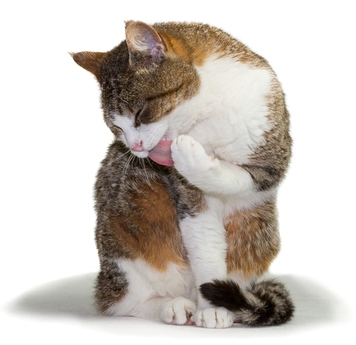 Coat Length Long-haired cats are more prone to developing hairballs due to the increased amount of fur they ingest during grooming.
Shedding Seasons - Cats may shed more fur during shedding seasons, leading to an increase in hairball formation.
Lack of Grooming - Cats that are unable to groom themselves adequately due to obesity, arthritis, or other health issues may have a higher risk of hairball formation.
Dry Skin or Coat - Dry skin or coat can contribute to increased shedding, leading to more hair ingestion and hairball formation.
Stress - Stressful events or changes in a cat's environment can lead to excessive grooming, which may increase the ingestion of fur and hairball formation.
Diet - A lack of dietary fiber or moisture in a cat's diet can affect the digestive process and contribute to hairball formation.
Coat Length Long-haired cats are more prone to developing hairballs due to the increased amount of fur they ingest during grooming.
Shedding Seasons - Cats may shed more fur during shedding seasons, leading to an increase in hairball formation.
Lack of Grooming - Cats that are unable to groom themselves adequately due to obesity, arthritis, or other health issues may have a higher risk of hairball formation.
Dry Skin or Coat - Dry skin or coat can contribute to increased shedding, leading to more hair ingestion and hairball formation.
Stress - Stressful events or changes in a cat's environment can lead to excessive grooming, which may increase the ingestion of fur and hairball formation.
Diet - A lack of dietary fiber or moisture in a cat's diet can affect the digestive process and contribute to hairball formation.
Health Risks Associated With Cat Hairballs
While hairballs are generally harmless, they can pose health risks if not managed properly. Hairball related health risks may include:
Gastrointestinal Obstruction - In some cases, hairballs can grow in size and cause blockages in the gastrointestinal tract. This can lead to serious complications, including vomiting, lethargy, and a loss of appetite.
Chronic Coughing and Retching - Persistent hairball-related issues may result in chronic coughing and retching, leading to discomfort and potential damage to the esophagus.
Decreased Appetite - Cats experiencing frequent hairballs may develop a decreased appetite, leading to weight loss and nutritional deficiencies.
Stress and Discomfort - Chronic hairball issues can contribute to stress and discomfort for your cat, affecting their overall quality of life.
Hairball Treatment For Cats
Home remedies for cat hairballs aim to promote natural hairball elimination by improving the normal passage of hair through the digestive tract. Some effective home remedies include:
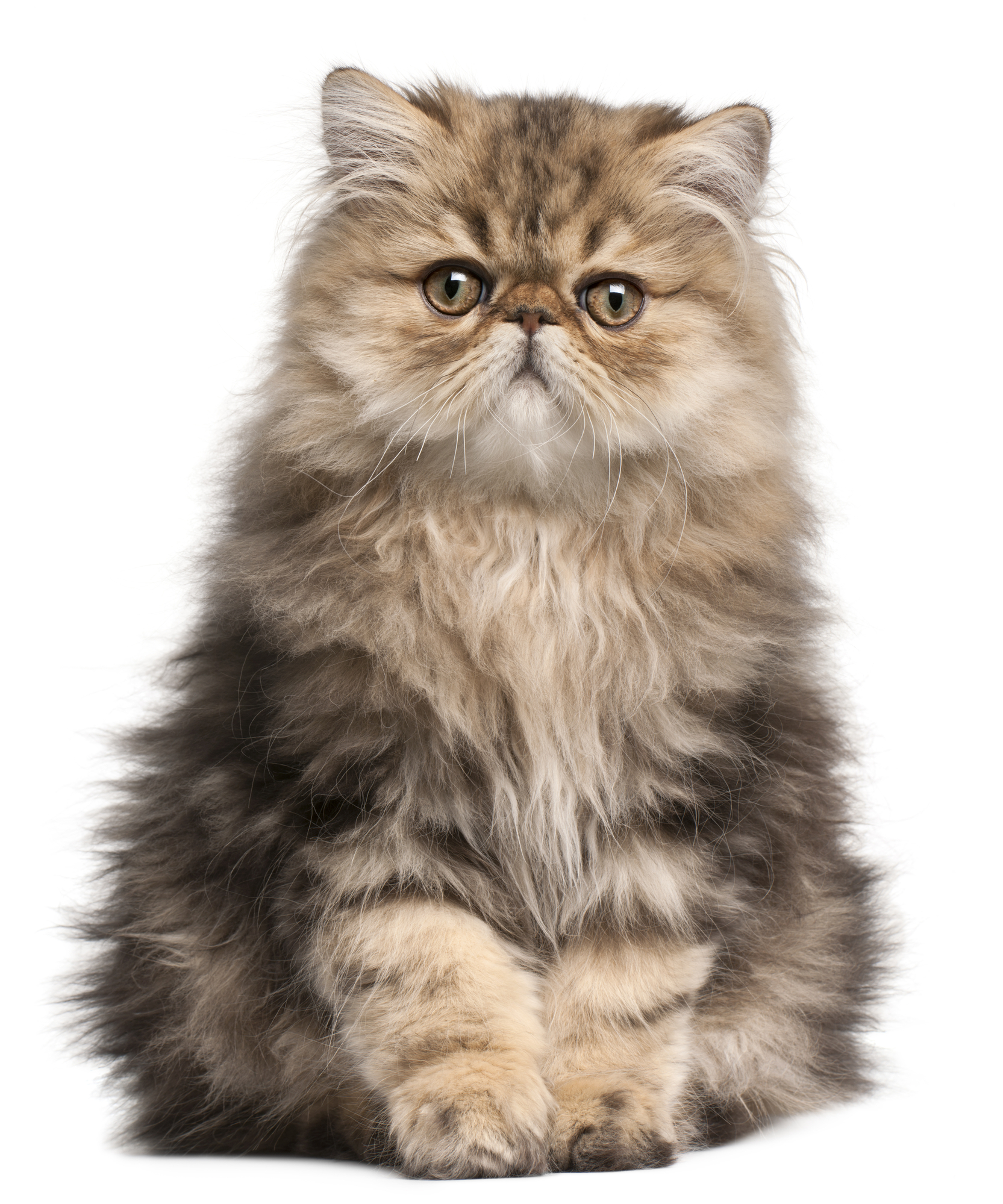
Dietary Fiber - Adding fiber to your cat's diet can help promote regular bowel movements and assist in passing hair through the digestive tract. High-fiber cat foods or adding a small amount of canned pumpkin to their meals can help.
Hydration - Ensuring your cat drinks an adequate amount of water helps keep their digestive system functioning smoothly and prevents constipation, which can exacerbate hairball issues.
Regular Grooming - Brushing your cat regularly helps remove loose fur before it's ingested during grooming. This can significantly reduce the amount of fur your cat swallows, minimizing hairball formation.
Increased Activity - Encouraging your cat to engage in regular play and exercise can help stimulate digestion and promote bowel movements, reducing the risk of hairball formation.
Natural Supplements - Probiotics and prebiotics can play a vital role in preventing hairballs by promoting healthy digestion. Certain herbs, such as marshmallow root, may help soothe the digestive tract and promote natural hairball elimination. Omega-3 fatty acids, like those found in fish oil can help lubricate the digestive tract to promote hairball passage.
Cat Hairball Remedies
Combining the use of digestive supplements with a high-fiber diet can maximize their effectiveness in preventing hairballs.
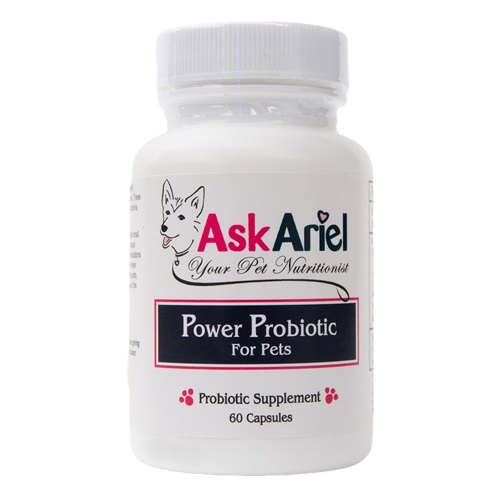
Power Probiotic For Cats
Probiotics can be helpful for cats with hairballs because they support digestive health and help maintain a balanced gut microbiome. A healthy gut microbiome is essential for proper digestion and nutrient absorption, which can aid in the efficient breakdown and elimination of ingested hair. Probiotics promote regular bowel movements and can help prevent constipation, which is a common contributing factor to hairball formation. Probiotics can help reduce the frequency and severity of cat hairballs.
Learn more about Power Probiotic For Cats
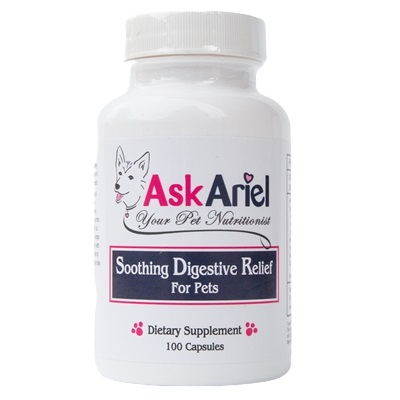
Soothing Digestive Relief
Contains enzymes, marshmallow root, and papaya leaf to promote digestion and soothe the digestive tract. Marshmallow root contains mucilage, a gel-like substance that can coat and soothe the digestive tract. Helps to relieve irritation and inflammation in the GI tract, making it easier for hairballs to pass through. Papaya leaf contains papain, an enzyme that can aid in protein digestion. Papaya leaf is also rich in fiber to support bowel function. Added enzymes help to break down food and help ensure that ingested hair is eliminated.
Learn more about Soothing Digestive Relief
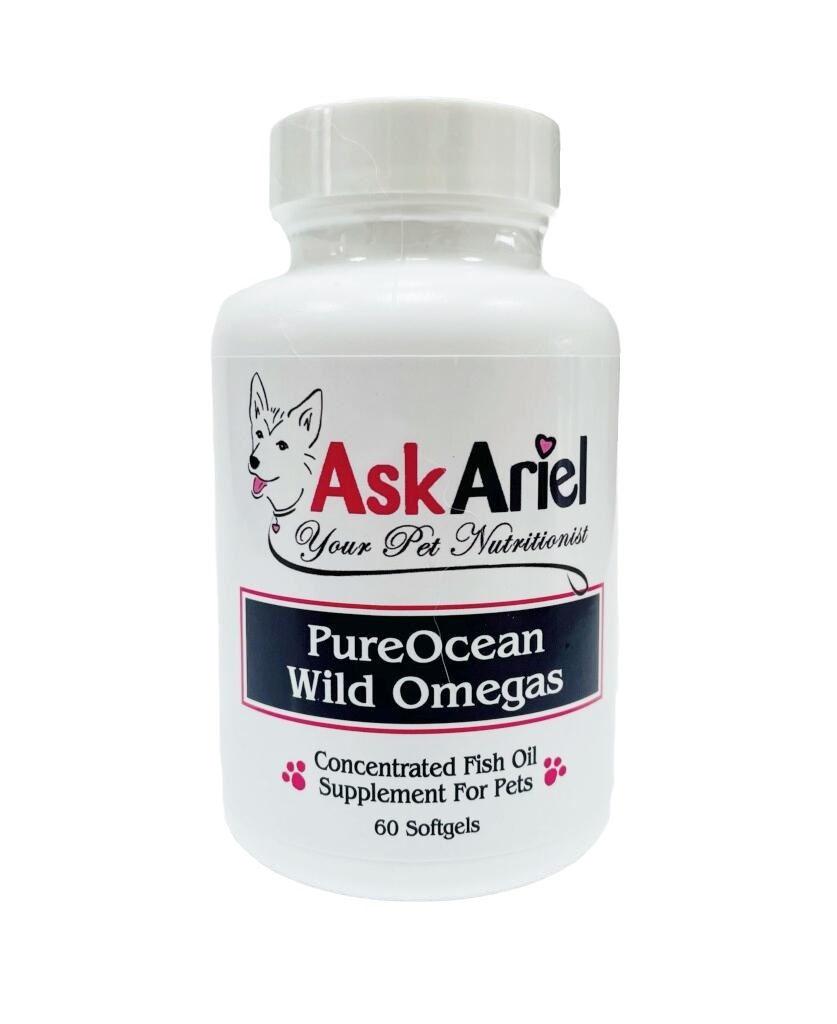
PureOcean Wild Omegas
Omega-3 fatty acids have anti-inflammatory effects, which can help reduce inflammation in the gastrointestinal tract to help facilitate the smoother passage of hairballs, making them easier for cats to eliminate. Omega-3 fatty acids are also beneficial for promoting healthy skin and coat in cats. A healthy coat helps minimize excessive shedding and reduces the amount of loose fur that cats ingest during grooming, ultimately decreasing the likelihood of hairball formation.
Learn more about PureOcean Wild Omegas
|